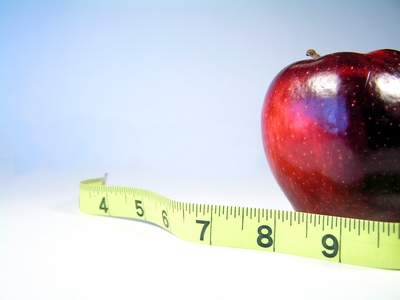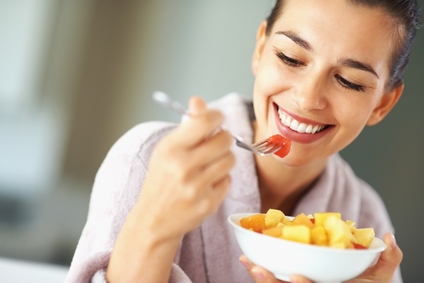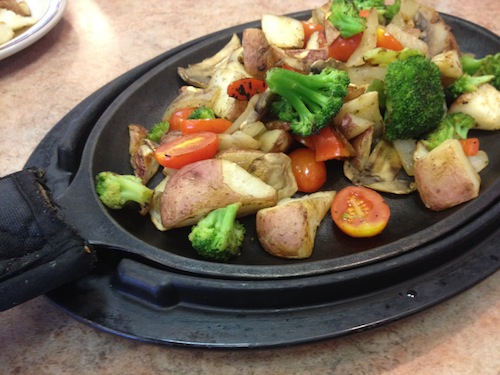Nov 12, 2012
I get so many emails about "super foods" that I thought I'd explore the topic here on the blog. Before I say anything else, though, let me say that I think all plant foods are pretty super and that I should eat them, and eat them as much as I can!

Now, do I think some plant foods are healthier than others? I guess that would depend on the context. I don't know how I could say an apple was healthier than an orange, or that a cucumber is healthier to an eggplant. I suppose it would be possible if we were talking specifically about a certain nutrient (i.e. who has more folic acid?) but even then it get's complicated.
Still, you just can't escape all the "super foods" marketing and buzz -- it's everywhere.
The questions I receive generally go as follows: "I was wondering if you ever eat hemp hearts/chia seeds/monkey eye balls [insert latest superfood here]. I read how beneficial they were. Do you eat them? How can I include them in my diet?"
My response is always the same: I generally don't buy into any of the "super food" marketing. I'm not discounting the benefits of certain foods but I think all plant foods offer remarkable benefits and that's what we should focus on. We should focus on eating plant foods in general. It's not about one or two 'magical' plant foods. It's about eating a diet filled with plant foods because *they are all super foods.*
Recently I came across this post, and Dr. Roa offers a great insight about "super foods." He writes, "Pomegranate, blueberries, acai, noni, mangosteen- what other fruits have millions of marketing dollars behind them? The truth is that as soon as you put almost any colorful fruit or vegetable under the microscope there is a treasure trove of complex biochemistry and phytochemicals with innumerable health benefits. Researchers, after spending millions to research the humble pomegranate, realized that there is a huge consumer market and then create a product with the research to back it."
There is no secret to good health. We all know what is healthy in our hearts. No one has to convince you an apple is healthy and a nutritional superstar, do they? ;) You don't see expensive advertisements in magazines for peas, do you?
Dr. Rao then goes on, "My dear mother-in-law Hasmik just asked me about asparagus and cancer. The article she forwarded had tons of research and testimonials from people who ate 4 tablespoons of pureed asparagus a day which cured their cancer. Yes asparagus contains a very high amount of glutathione, one of the strongest antioxidants in the body. There are several vegetables like this which do contain specific phytochemicals which are useful for specific conditions (the Brassicaceae plant family and its cancer fighting isothiocyanates found in broccoli and cabbage)."
The takeaway is, yes asparagus is great, but so are broccoli and cabbage, they just didn't get the marketing.
So don't be fooled by the hype or marketing -- remember that advertisements and commercials are still ADVERTISEMENTS.
Keep in mind that ALL fruits and vegetables are good for you!
"We are surrounded by super-foods, we just don’t realize thats what they are called. Ice to Eskimos." - Dr. Rao
On the meal plans we keep it simple -- whole plant foods, varied and in abundance!
Lastly, back in July, GMP reposted Jeff Novick, MS RD's Top 10 "Superfoods" List. Here they are: fruits, vegetables, cruciferous vegetables, starchy vegetables/roots/tubers, intact whole grains, beans/peas/lentils, and nuts/seeds/avocado (in limited amounts). It really is that simple!
Get the current meal plan now.






